Funny Tv Quotes About Being a Failure
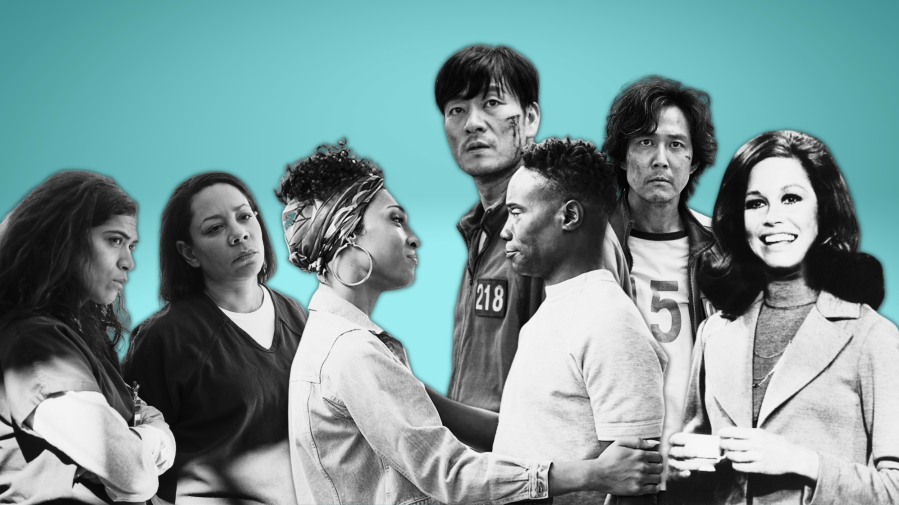
Whether a show is a total guilty pleasure or a highbrow icon of Prestige TV, a feel-good sitcom or a high-concept drama, television has the ability not only to represent and mirror society but teach us some valuable lessons about acceptance and openness.
That's why we've decided to take a look back at TV history and highlight a few titles that made TV a more representative, progressive and diverse place.
I Love Lucy
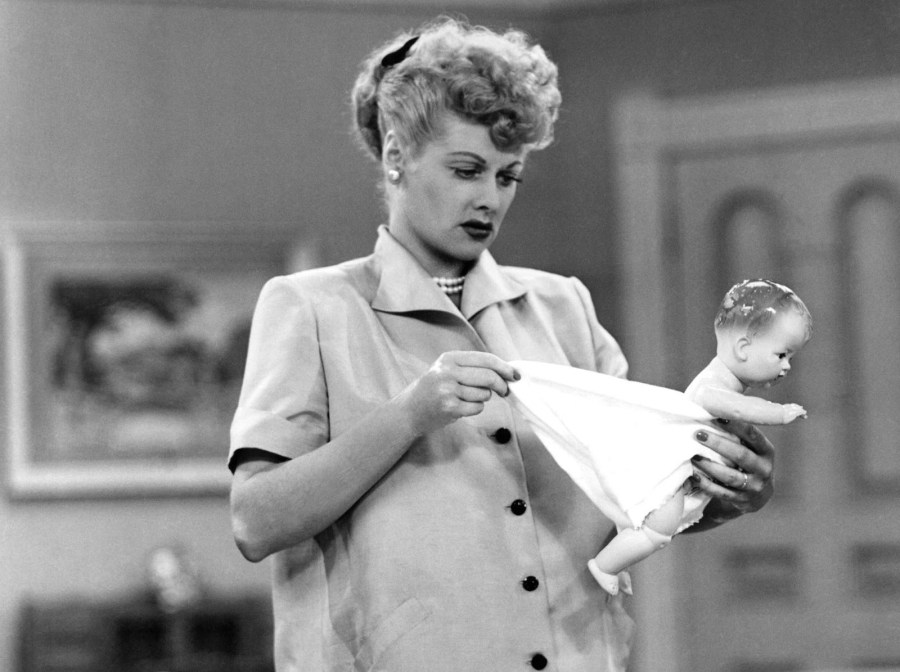
Back in the 1950s, Lucille Ball's sitcom I Love Lucy, in which her character was married to Ball's real-life husband Desi Arnaz, broke a big TV taboo. When the actress became pregnant the couple thought the show, which had aired for one season on CBS, would be canceled or put on hiatus until after she gave birth. Pregnancy wasn't a thing that happened on TV at the time. And writing around an actress's pregnancy hasn't always been as easy as getting Scandal's Kerry Washington a few fabulous coats.
In the end, Ball's pregnancy was written into the show, an approach that's been used plenty of times in scripted TV since then. The writers would have to avoid the word "pregnant" though, considered too vulgar to air. The episode in which Lucy's pregnancy was announced aired in 1952. It was titled "Lucy Is Enceinte" because apparently it's OK to refer to the "p" word in French. The characters used verbal workarounds like "we're having a baby" or "blessed event" to imply Lucy's state.
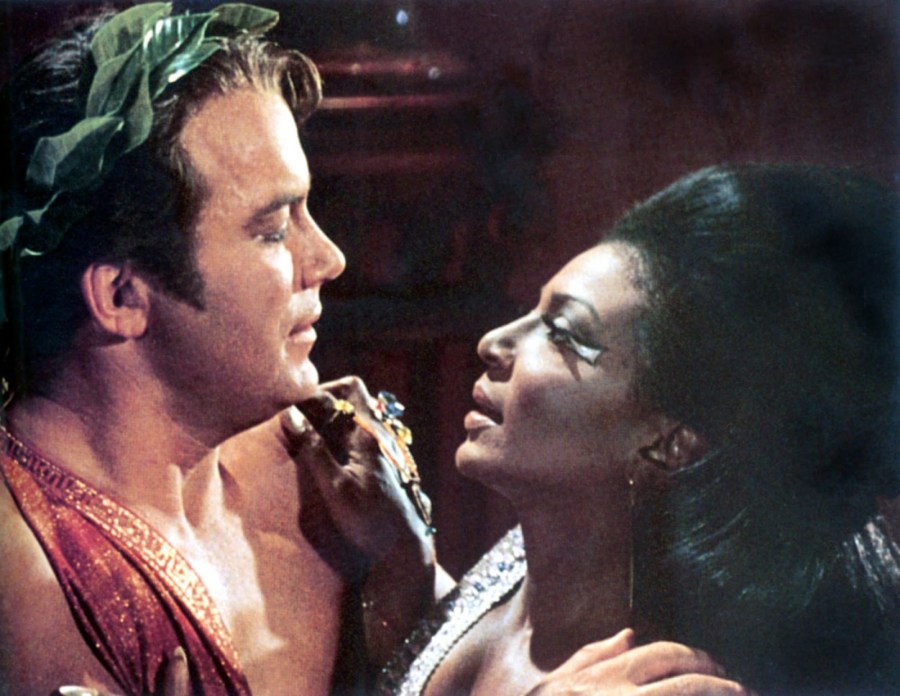
Star Trek: The Original Series not only garnered a devoted following that's since spun several sequel series, spin-offs and movie franchises over the decades, it was also a rare example of diversity on screen. Nichelle Williams played Uhura, a Starfleet Lieutenant and communications officer, making the show one of the first to feature a Black woman not portraying a servant. George Takei played Lieutenant Sulu, the U.S.S. Enterprise's helmsman. Having a Japanese American actor in such a visible role just two decades after World War II, a time defined by America's anti-Asian policies and racism, also highlighted the show's commitment to representation.
Then there's the kiss. Uhura and Captain Kirk (William Shatner) kissed in a 1968 episode while under the influence of aliens. You can argue whether that was the first interracial kiss on screen or not, but it sure proved the show's dedication to the depiction of a plural and diverse society. And it confirmed Kirk's famous words: "Where I come from, size, shape or color makes no difference."
The Mary Tyler Moore Show
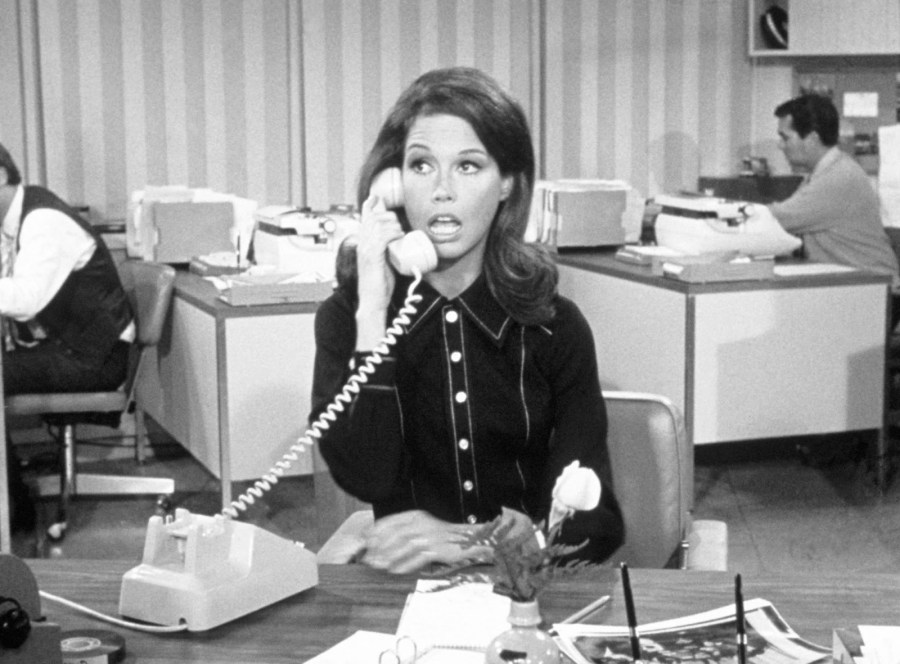
This seven-season sitcom that aired between 1970 and 1977 broke a few molds. It starred Mary Tyler Moore as Mary Richards, a single woman in her 30s focused on her career in a TV station. The show was created by James L. Brooks and Allan Burns but boasted a writers' room where there was also a significant number of women, especially for the period. Treva Silverman was one of the first women hired as a writer for the show, and, importantly, she shared her own experiences to inform the characters' lives.
Other than in the writers' room, the show was groundbreaking because it focused on the life of an independent career woman who didn't care about getting married. And although certain themes weren't treated in the same, direct way we've grown accustomed to in the past few decades, the show made suggestions about Mary having an active sexual life and taking the pill.
It also paved the way for other career-women-centered shows like Murphy Brown, Ally McBeal, 30 Rock and even Sex and the City.
Ellen
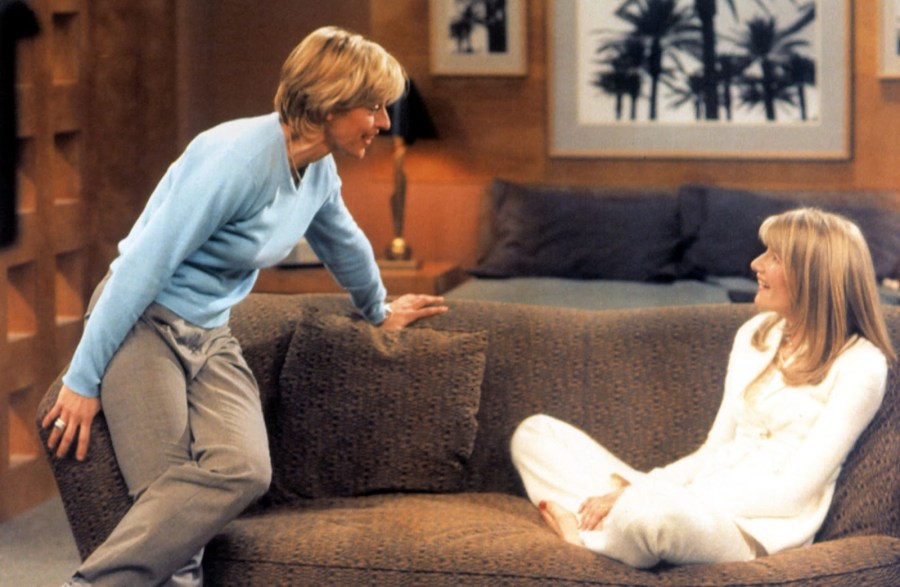
The sitcom Ellen, starring Ellen DeGeneres as Ellen Morgan, was on its fourth season when it aired "The Puppy Episode" in 1997. In it, Morgan was attracted to a character played by Laura Dern and she came out as gay to her friends. The "Yep, I'm gay" moment was big for American TV because up until then gay characters had been relegated to secondary, mostly one-note roles. DeGeneres' character announcing her sexual orientation coincided with the actress herself also formally coming out with a Time magazine cover and interview.
DeGeneres' figure was under scrutiny last year regarding allegations of a toxic work environment in her talk show The Ellen DeGeneres Show, but in the 1990s her sitcom cleared the way for further LGBTQ+ representation on TV. The sitcom Will & Grace started airing in 1998 with Eric McCormack playing gay lawyer Will and best friend to Grace (Debra Messing). Then there was Queer as Folk on Showtime in 2000. It was an adaptation of a British show of the same name and depicted a group of gay friends — and their sex lives — in a nuanced way.
The Fresh Prince of Bel-Air
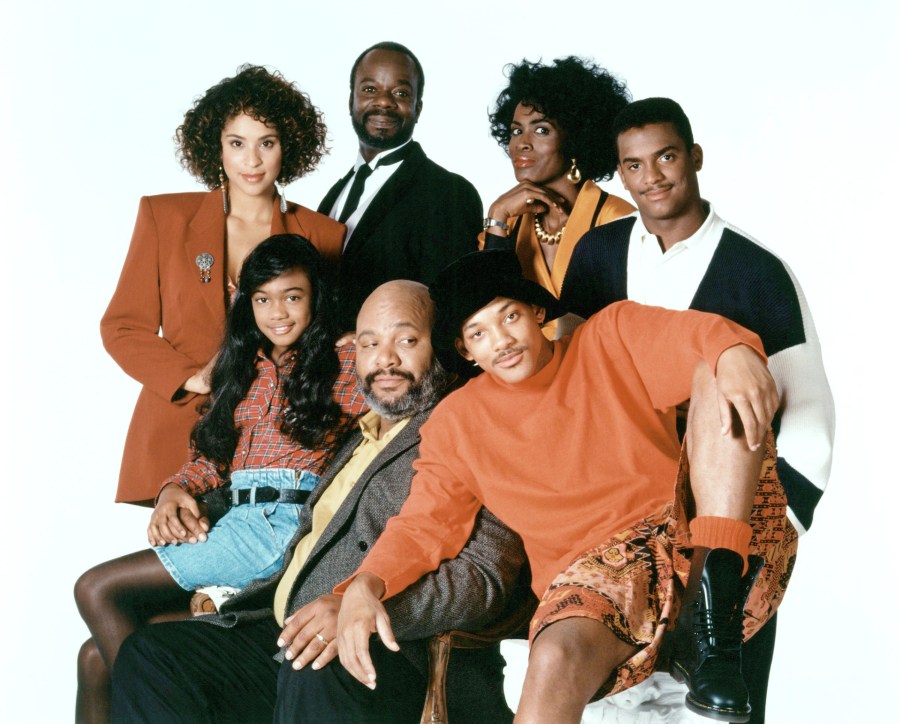
The Banks — and their Philadelphia-born nephew Will Smith — weren't the first Black family on a successful TV sitcom with international success. The Cosby Show reigned first with eight seasons, running from 1984 to 1992, before Bill Cosby's sex crimes came to light.
The Fresh Prince of Bel-Air started airing in 1990 and was loosely based on Smith's life. The six-season sitcom jump-started Smith's career. But other than making the protagonist a movie star, the show also highlighted the life of a wealthy, stable and college-educated Black family, widening the scope of how Black characters were represented on TV.
Even though it was a sitcom, the show defined the golden era for Black TV in the '90s and
also tackled serious topics like police profiling — Will and Carlton (Alfonso Ribeiro) get pulled over by the police while driving a Mercedes Benz — drug use, gun violence, date rape, HIV, racism and other issues. And you can still enjoy it regardless of your take on Peacock's dramatic remake, Bel-Air — or even The Slap.
Ugly Betty
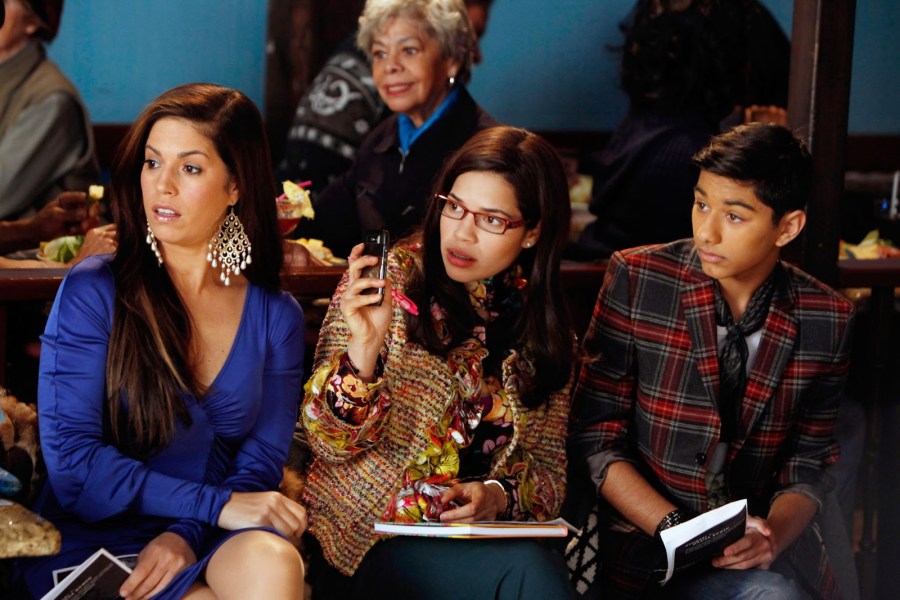
The dramedy Ugly Betty, which ran on ABC for four seasons between 2006 and 2010, was an adaptation of the Colombian telenovela Yo soy Betty, la fea. The show put a Mexican American family front and center in a primetime show. It also starred America Ferrera, who played an unstylish but hard-working woman who ends up working at a fashion magazine. Tony Plana played Betty's dad and he often mixed Spanish and English dialogue in the show, the way a lot of Hispanic families do. And Ana Ortiz played Hilda, Betty's older sister. The show garnered praise for its representation of Latinas on TV.
But it also addressed topics like body image and Hilda's teenage son coming out as gay. Besides winning three Emmys, Ugly Betty won two Gay and Lesbian Alliance Against Defamation (GLAAD) Media Awards.
Ortiz is once again involved in a history-making TV show: Hulu's Love, Victor. The show centers on Victor — a half-Colombian-American, half-Puerto Rican gay teenager — and his struggles to tell his religious family he's gay. Ortiz plays Victor's mom.
Orange Is the New Black
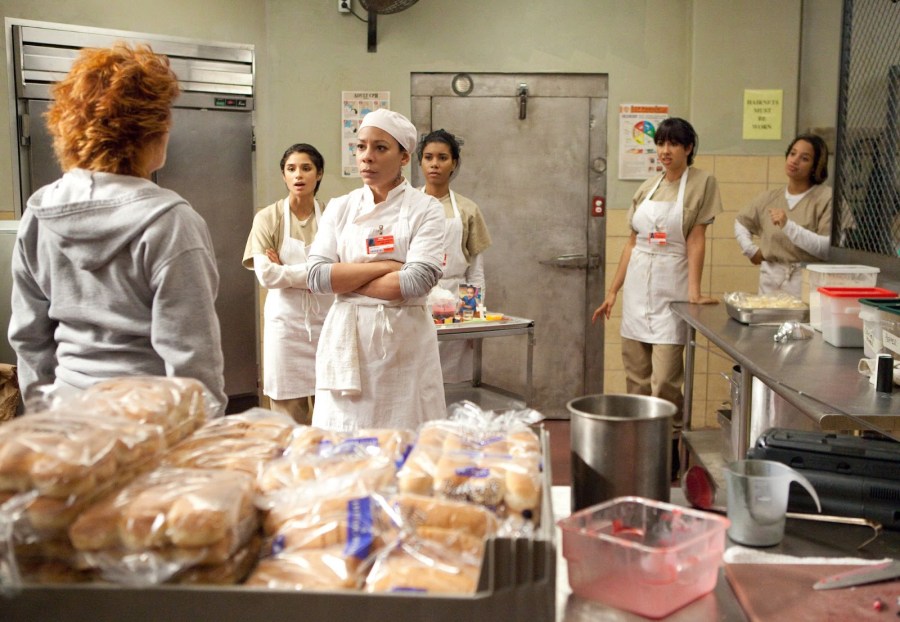
What started as the adaptation of Piper Kerman's memoir about the months she spent in prison for a decade-old drug conviction, ended up becoming much more than that. As Jenji Kohan's (Weeds) show progressed, it stopped focusing on Piper (Taylor Schilling) and opened the scope to an incredibly diverse ensemble cast of women. The show, which aired for seven seasons on Netflix from 2013 to 2019, became a refreshing blend of tales from all the women who made it.
In later seasons, the series also commented on the for-profit prison system and immigration. But its inclusion of women of all ages, races and backgrounds is what made it stand out in the first place. Plus, the series has helped cement the careers of actresses Uzo Aduba (Mrs. America, In Treatment), Natasha Lyonne (Russian Doll), Samira Wiley (The Handmaid's Tale) and Laverne Cox (Promising Young Woman).
Pose
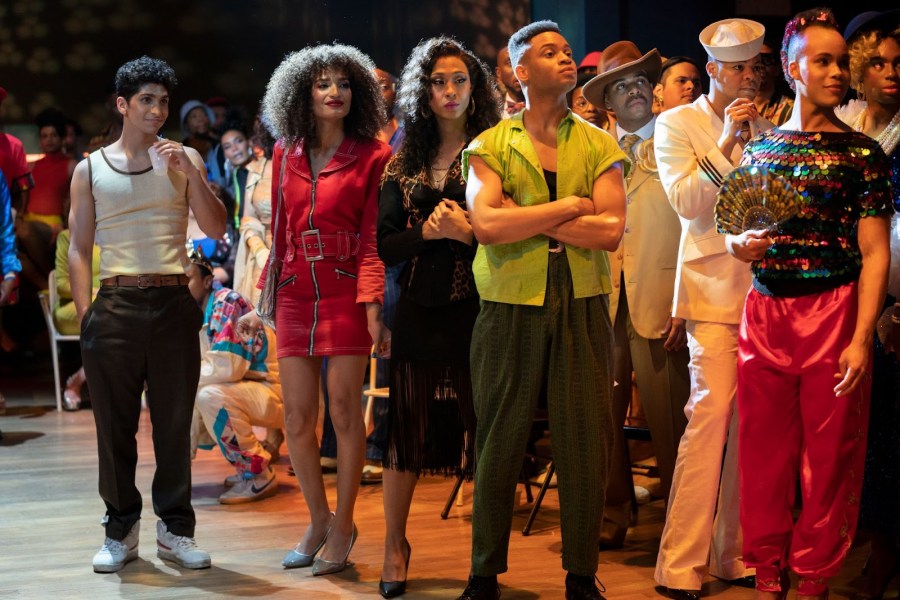
FX's Pose not only meant a front-row seat to ballroom culture. The show, created by Ryan Murphy, Brad Falchuk and Steven Canals, is set in the late '80s and early '90s and depicts the lives of a group of Black and Latina transgender women and their gay friends. They're in the midst of the AIDS epidemic and try to carve a place for themselves in a society that turns a blind eye or simply rejects them, all while they reshape the definition of family.
The show made headlines when it first debuted in 2018 for having the largest transgender cast of any scripted series. Not only that, the show enlisted writer and activist Janet Mock, and, soon after, she became the first transgender woman of color to write and direct an episode of television. Mock has written and directed several Pose's episodes since. Pose's best-known face is perhaps that of Billy Porter. The Emmy-winning actor has become a red carpet fixture thanks to the show's success. He's taken the mantle from his character Pray Tell and helped redefine what masculinity means.
Rutherford Falls
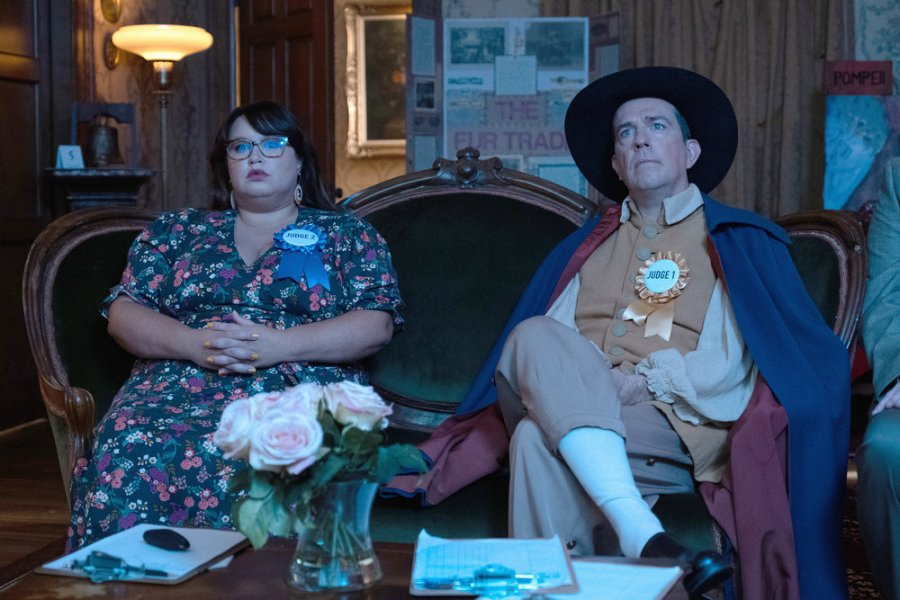
This Peacock sitcom that aired its first season in April 2021 is co-created and executive produced by Ed Helms, Michael Schur (Parks and Recreation) and Sierra Teller Ornelas (Superstore). Teller Ornelas is Navajo and one of the five Native writers on this show. In fact, Rutherford Falls has one of the largest Indigenous writers' rooms in history, according to Peacock.
Native American representation is also a big part of Rutherford Falls in front of the cameras with actors Jana Schmieding and Michael Greyeyes playing members of the fictional Minishonka Nation. Rutherford Falls has been praised for its depiction of Native American characters and cultures and inclusive representation. The show also stars Helms as Nathan Rutherford and Jesse Leigh as Bobbie Yang, Nathan's non-binary executive assistant.
Rutherford Falls has only aired one season so far but wasn't the only trailblazing show to open new opportunities for Native American narratives told by Indigenous creators and actors. Also in 2021, we saw the release of the coming-of-age comedy Reservation Dogs on FX. The Taika Waititi- and Sterlin Harjo-created show's first season was completely written, directed and starring Indigenous people.
Squid Game
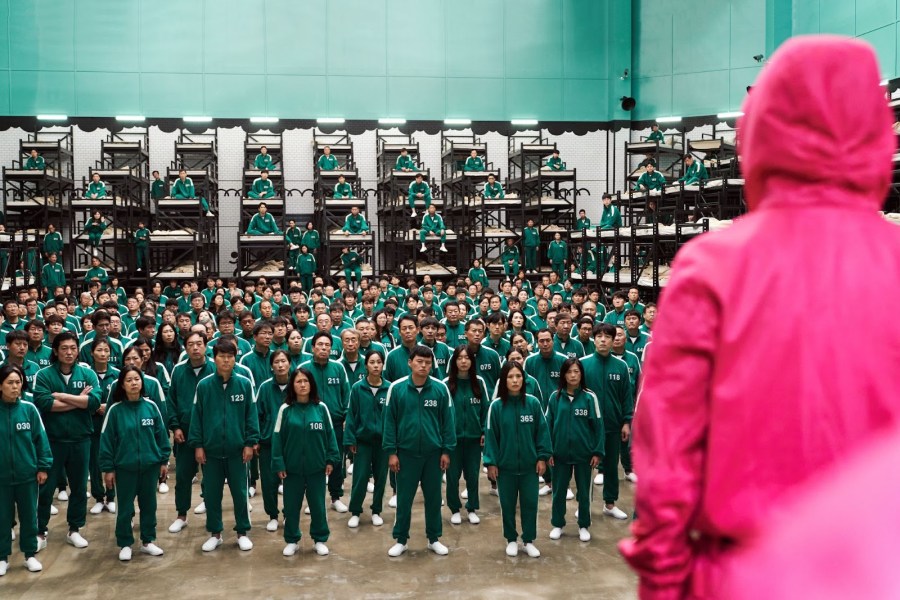
This South Korean hit 2021 show broke records by becoming Netflix's most popular TV show — both considering international shows but also in English — when you take into account the show's viewed hours during the first 28 days of it being released. Squid Game accounts for 1,650,450,000 viewed hours during that time frame, according to Netflix.
In comparison, Netflix's second most popular non-English show is the fourth season of the Spanish heist drama Money Heist, which has 619,010,000 hours viewed. In English, the most popular Netflix show is the second season of Bridgerton with 627,110,000 hours viewed. Squid Game more than doubles any of those numbers.
Source: https://www.ask.com/tvmovies/tv-shows-make-history?utm_content=params%3Ao%3D740004%26ad%3DdirN%26qo%3DserpIndex
0 Response to "Funny Tv Quotes About Being a Failure"
Post a Comment